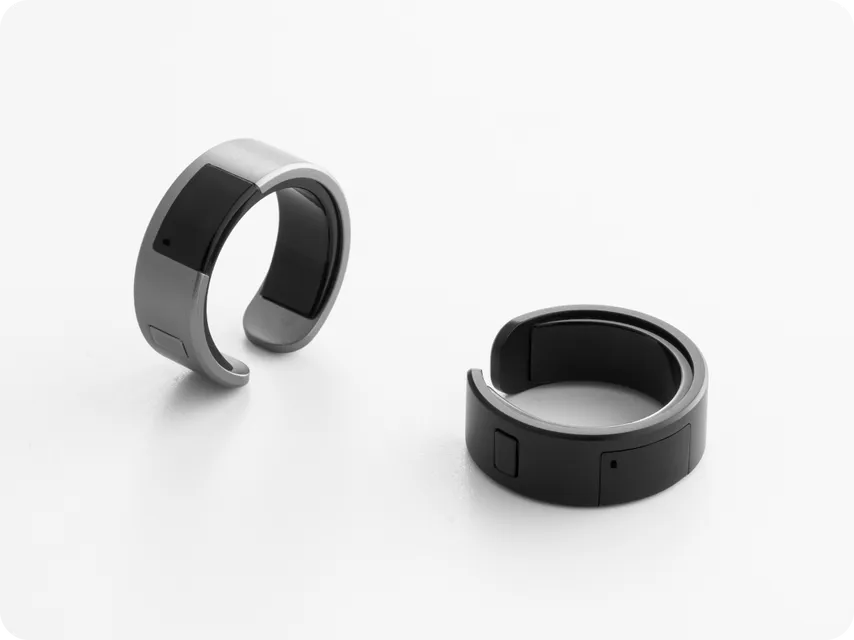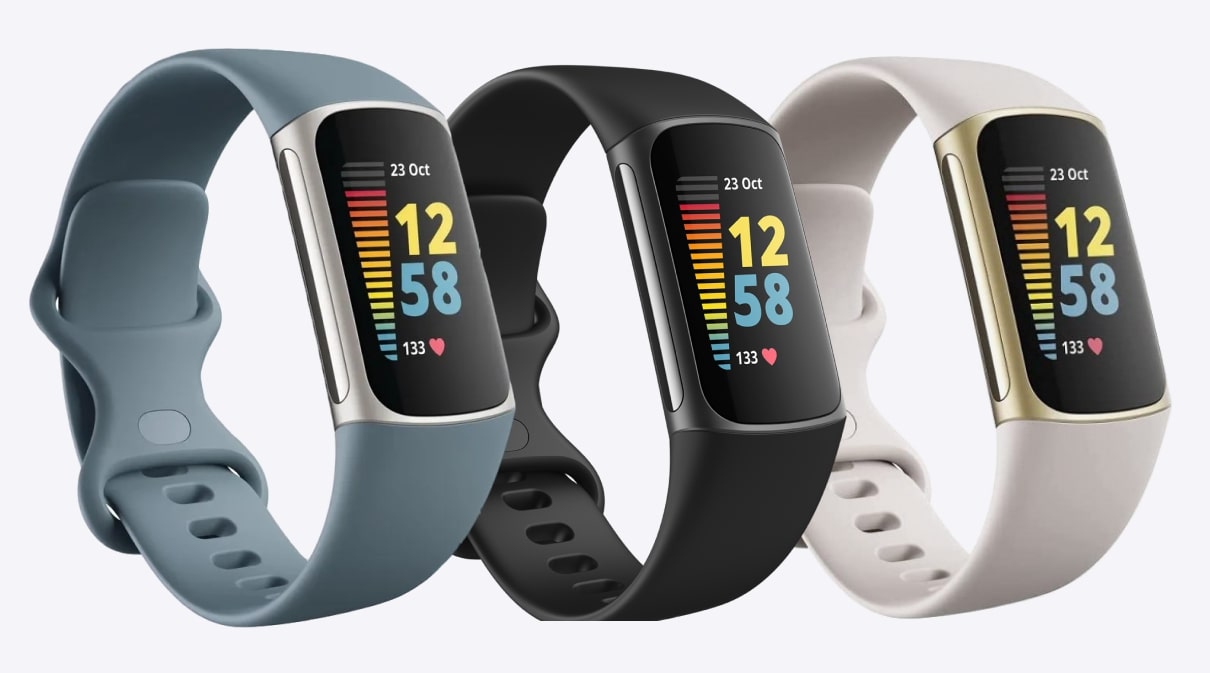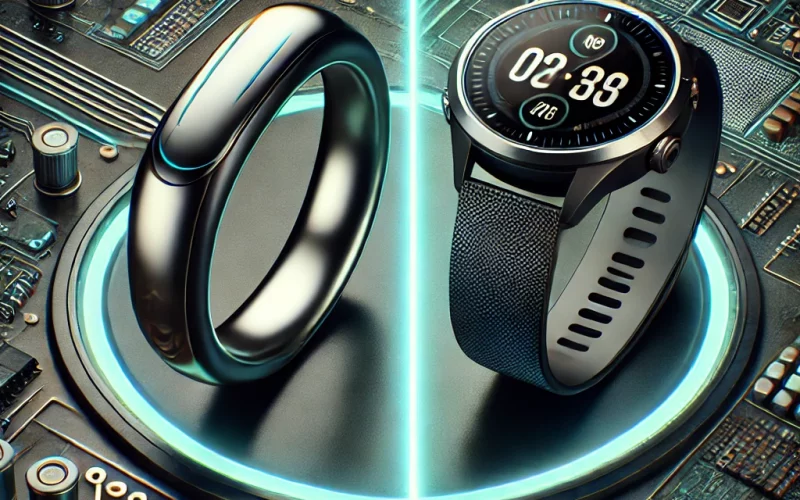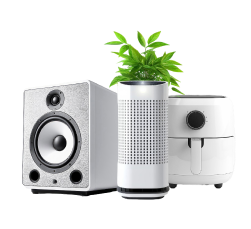In the ever-evolving world of wearable technology, two giants stand out in the realm of health and fitness tracking: the Oura Ring and Garmin. Whether you’re a seasoned athlete, a health enthusiast, or someone just beginning their wellness journey, choosing the right wearable can significantly impact your health and performance tracking.
This article will help you navigate the decision between the Oura Ring and Garmin, offering a comprehensive comparison to guide you toward the best choice for your needs.
Table of Contents
Oura Ring vs Garmin: The Verdict

Choosing between the Oura Ring and Garmin boils down to what you prioritize in a wearable. Here’s a quick breakdown of where each excels:
Best Overall: Garmin
Garmin wins as the best overall option due to its versatility and extensive range of features that cater to both athletes and casual users. Whether you’re tracking your runs, swims, or heart rate during an intense workout, Garmin offers a robust solution with its line of smartwatches.
Best by Price: Oura Ring
When it comes to price, the Oura Ring provides excellent value for those focused on health and wellness, particularly sleep tracking. While it may seem costly upfront, its long battery life and focused health insights justify the investment, especially if you’re primarily interested in detailed health data without the additional bulk of a smartwatch.
Best for Health Monitoring: Oura Ring
For those who prioritize health monitoring, particularly sleep, and recovery, the Oura Ring is unmatched. It offers deep insights into your body’s signals, providing valuable data on sleep stages, readiness, and overall wellness. Its unobtrusive design makes it easy to wear 24/7, ensuring you capture the most accurate health data.
Best for Fitness Tracking: Garmin
If your main goal is to track fitness activities, Garmin is the clear winner. With its wide range of sports profiles, GPS functionality, and advanced metrics like VO2 max, Garmin devices are built for athletes and fitness enthusiasts. The brand’s commitment to durability and accuracy makes it the preferred choice for those who need a reliable fitness companion.
Best for Battery Life: Garmin
Garmin also takes the lead in battery life, particularly with models like the Garmin Fenix series, which can last up to two weeks on a single charge. While the Oura Ring offers a respectable 4-7 days of battery life, Garmin’s extended battery performance is ideal for those who don’t want to worry about frequent charging.
Best for Design and Comfort: Oura Ring
When it comes to design and comfort, the Oura Ring shines. Its sleek, minimalist design is both stylish and comfortable, making it a subtle yet powerful health-tracking tool that you can wear all day without noticing.
In summary, Garmin is the better choice for fitness enthusiasts and those seeking an all-around wearable, while the Oura Ring is ideal for individuals focused on health monitoring, especially sleep and recovery.
Oura Ring vs Garmin: Detailed Comparison
To make an informed decision, let’s dive into the detailed comparison of these two wearables, focusing on the most important features and aspects.
Health Monitoring
Oura Ring: The Oura Ring is designed primarily for health monitoring, with a strong emphasis on sleep tracking, heart rate variability (HRV), and readiness scores. It measures your body temperature, respiratory rate, and sleep stages, providing a comprehensive overview of your nightly recovery. The Oura Ring’s data is presented in a user-friendly app that helps you understand how your daily activities and sleep quality affect your overall health.
Garmin: Garmin devices also offer extensive health monitoring features, including heart rate tracking, blood oxygen saturation (SpO2), stress tracking, and sleep monitoring. However, Garmin’s health tracking is part of a broader fitness and activity monitoring ecosystem, which means that while it provides detailed health data, it might not go as deep into specific areas like sleep as the Oura Ring does.
Winner: Oura Ring – If your primary focus is on health and wellness monitoring, particularly sleep, the Oura Ring provides more specialized insights.
Fitness Tracking
Oura Ring: The Oura Ring offers basic fitness tracking features, including step counting and calorie burn estimation. However, it lacks the advanced fitness metrics found in Garmin devices. The Oura Ring is not designed for tracking specific sports or intense workouts, making it less suitable for athletes.
Garmin: Garmin excels in fitness tracking, offering detailed metrics for a wide range of activities, from running and cycling to swimming and strength training. Garmin devices include built-in GPS, heart rate monitoring, VO2 max estimation, and recovery time recommendations. These features make Garmin the preferred choice for anyone serious about their fitness regime.
Winner: Garmin – For comprehensive fitness tracking and performance metrics, Garmin is unbeatable.
Battery Life
Oura Ring: The Oura Ring’s battery life ranges from 4 to 7 days, depending on usage. This is impressive given its compact size and the amount of data it tracks. The ring charges fully in about 80 minutes, making it convenient for regular use.
Garmin: Garmin devices, depending on the model, can offer anywhere from 7 days to 2 weeks of battery life. High-end models like the Garmin Fenix can last up to 14 days on a single charge, with some models offering solar charging for even longer battery life.
Winner: Garmin – With a significantly longer battery life, Garmin is more suited for those who need a reliable device over extended periods without frequent recharging.
Design and Comfort
Oura Ring: The Oura Ring is designed to be worn 24/7, and its sleek, lightweight design ensures it is comfortable to wear all day and night. It’s available in various finishes, making it a stylish accessory that doesn’t scream “tech gadget.” Its minimalist design also makes it a discreet option for those who prefer not to wear a watch.
Garmin: Garmin offers a wide range of designs, from sporty to premium, but all are bulkier compared to the Oura Ring. While Garmin watches are comfortable, especially with silicone bands, they are still more noticeable on the wrist, which might not be ideal for everyone.
Winner: Oura Ring – For those who prioritize a discreet, comfortable design, the Oura Ring is the clear winner.
App and Data Insights
Oura Ring: The Oura app is well-regarded for its simplicity and depth of insight. It focuses on three main scores: Sleep, Readiness, and Activity, helping users understand their overall health at a glance. The app provides actionable insights and suggestions based on the data collected, making it easy for users to make lifestyle adjustments.
Garmin: Garmin’s Connect app is a powerhouse of data, offering a detailed breakdown of your activities, health stats, and performance metrics. However, the sheer amount of data can be overwhelming for some users. Garmin’s app is best suited for those who enjoy diving deep into their fitness and health data.
Winner: Oura Ring – For ease of use and focused health insights, the Oura app offers a more streamlined experience.
Price
Oura Ring: The Oura Ring is priced at around $299-$399, depending on the finish. While it’s a significant investment, the ring’s durability, health insights, and long battery life offer good value for money. There is also a subscription fee of $5.99 per month to access all features in the app.
Garmin: Garmin’s devices vary widely in price, from $199 for entry-level models to $1,000+ for premium options like the Garmin Fenix series. Garmin offers a device for nearly every budget, but the price can climb quickly if you opt for the more advanced models.
Winner: Oura Ring – For those on a budget who still want advanced health monitoring, the Oura Ring provides excellent value.
X Alternatives to Oura Ring and Garmin that Might Fit Better to Your Needs
While the Oura Ring and Garmin devices are both excellent choices, they might not be perfect for everyone. Here are some alternatives that could better suit your specific needs:
1. WIZP Ring: Better Voice Chat Integration

Why it’s a great alternative: The WIZP Ring offers a unique feature that neither the Oura Ring nor Garmin provides: instant voice chat with AI. This ring is ideal for those who need to stay connected on the go, making it a fantastic option for people who value communication as much as health tracking. While it may not offer the same depth of health insights as the Oura Ring, it provides a perfect blend of communication and basic health tracking features.
2. Whoop Strap: Best for Continuous Health Monitoring
![]()
Why it’s a great alternative: The Whoop Strap is a top choice for those who want continuous health monitoring without the distraction of a screen. It offers in-depth insights into sleep, recovery, and strain, similar to the Oura Ring, but with a focus on long-term health trends. The Whoop Strap also operates on a subscription model, offering a lower upfront cost but with ongoing fees.
3. Fitbit Charge 5: Best Budget-Friendly Option

Why it’s a great alternative: For those looking for a more budget-friendly alternative to Garmin, the Fitbit Charge 5 is an excellent option. It offers comprehensive health and fitness tracking features, including stress management, heart rate monitoring, and built-in GPS, all at a fraction of the cost of most Garmin devices. It’s a great choice for those who want a balance of health and fitness tracking without breaking the bank.
Conclusion
In the battle between the Oura Ring and Garmin, your choice should reflect your priorities. Garmin’s extensive range of fitness tracking features and impressive battery life make it the best choice for athletes and fitness enthusiasts. On the other hand, the Oura Ring excels in health monitoring, particularly for those focused on sleep and recovery.
However, if neither of these options perfectly suits your needs, there are several alternatives worth considering, such as the WHSP Ring for communication, the Whoop Strap for continuous health monitoring, and the Apple Watch Series 8 for a seamless Apple experience.
Ultimately, the best wearable for you is the one that aligns with your lifestyle, health goals, and budget. With the insights provided in this comparison, you’re now better equipped to make an informed decision that will enhance your wellness journey.



